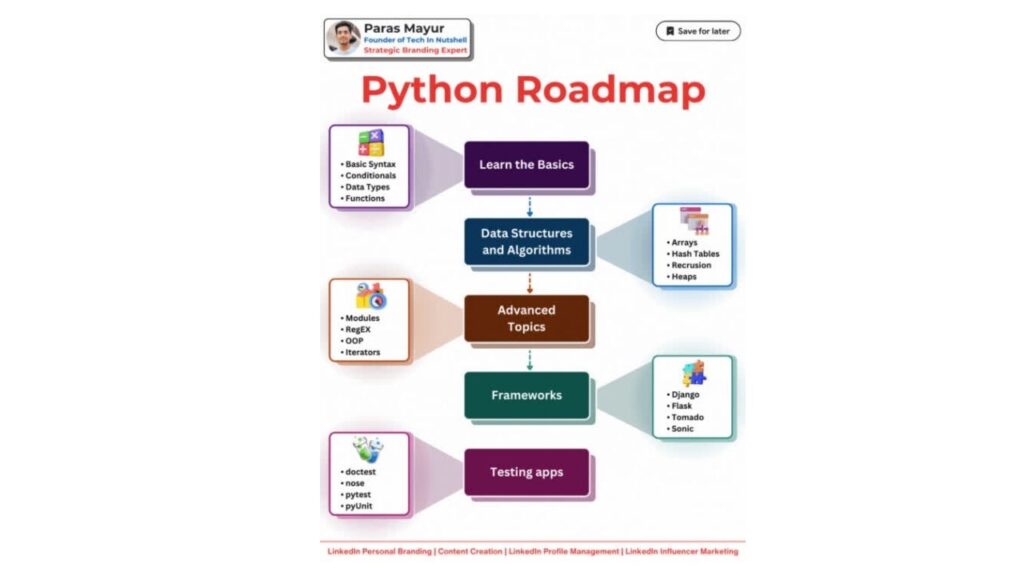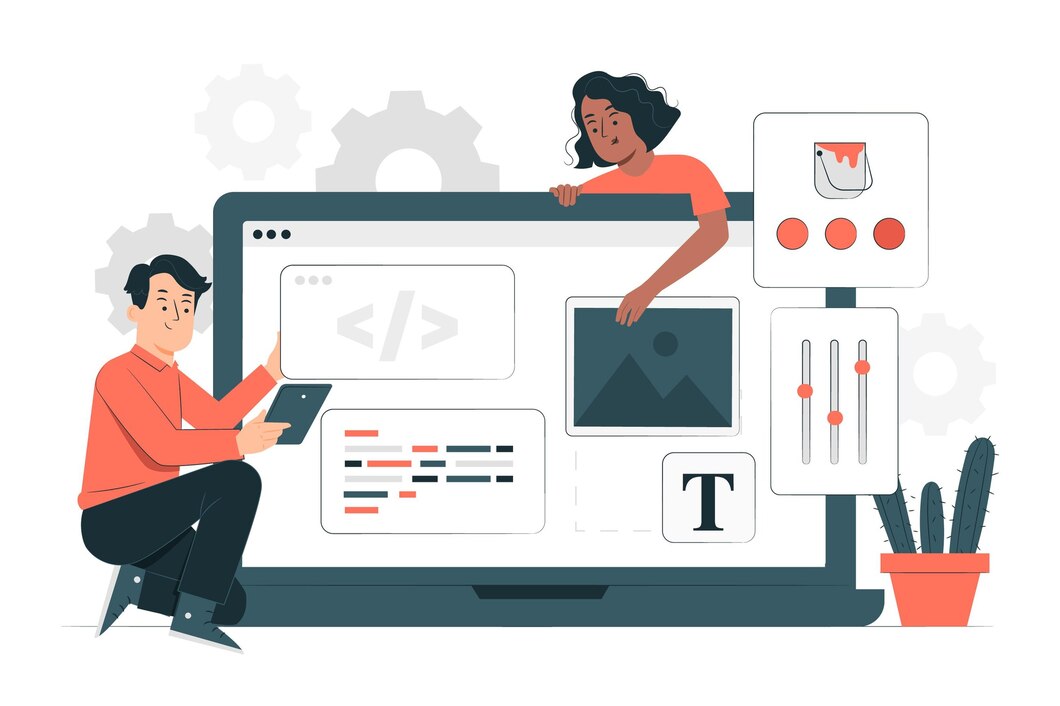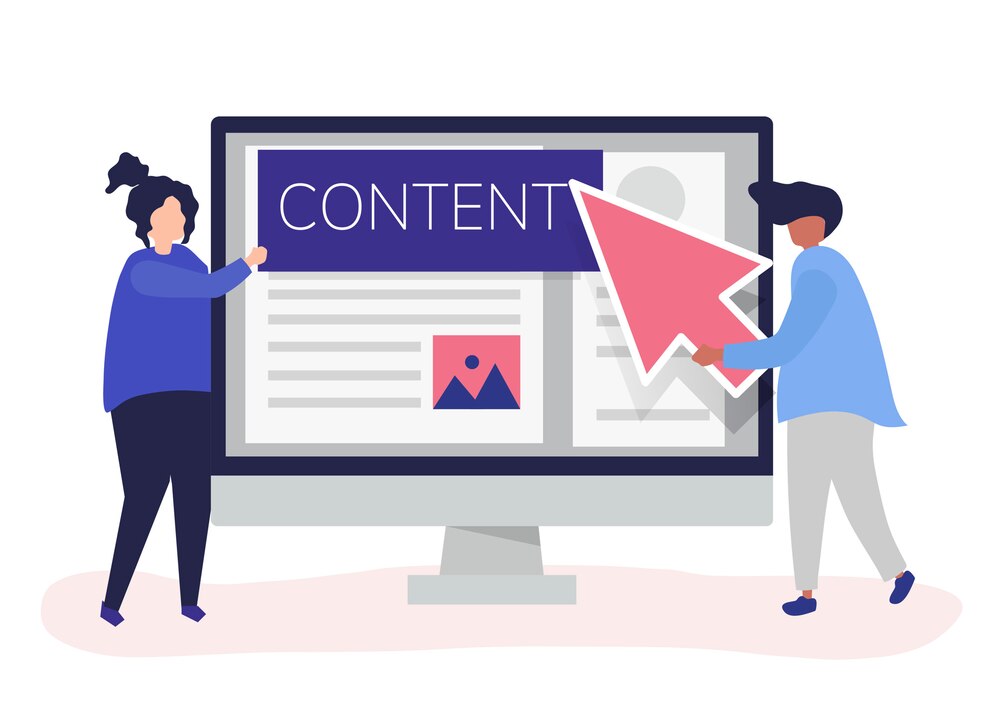The dynamic, multi-functional Python language helps you rule the world of web development, data science and machine learning. If you’re a coding neophyte or an experienced hand, taking up the challenge to follow a structured Python roadmap will provide solid ground for your programming journey.
Starting the Python learning journey
1) Mastering the Fundamentals
1.1 Basic Syntax
For starters, get to grips with the language’s quirky syntax. Know how to deal with variables, indentation and basic statements in order write clean readable code.
1.2 Conditionals
The if, elif and else statements automate program flow. Set conditions, control your code’s destiny.
1.3 Data Types
Explore Python’s comprehensive data types, such as integers and fractions. Learn to control and use these formidable structures.
1.4 Functions
Understand the essence of functions, parameters and return values. To improve your coding skills, try writing reusable code blocks for greater modularization.
Also read – What is OSI Model? Understanding it’s 7 layers
2) Diving into Data Structures and Algorithms
2.1 Study the manipulation of arrays. Harness the power of arrays in Python by mastering indexing, slicing and basic operations.
2.2 Hash Tables
Dive into the world of hash tables. Their implementation can help unveil the secrets of efficient data retrieval.
2.3 Recursion
Learn how to solve problems with recursion. Know the truths behind recursive functions to solve hairsplitting problems.
2.4 Heaps
Examine heaps and their use in priority queues. Understand how heapsort works to sort items effectively.
3) Navigating Advanced Topics
3.1 Modules
Python’s modularity through modules. Know how to construct, import and apply modules well in order that your code will be neatly organized.
3.2 RegEX
Harness the potency of regular expressions (RegEX) for pattern-matching. Explore their uses for text editing and validation.
3.3 OOP (Object-Oriented Programming)
Discover the world of OOP in Python. Understand classes, objects, inheritance, polymorphism and encapsulation.
3.4 Iterators
Explore iterators and iterable objects. Master how to use them and apply for fast data walking in your Python projects.
4) Embarking on Frameworks
4.1 Django
Learn about the Django framework for rock-solid web development. More than 30 master models, views, templates and the Django ORM that makes project development smooth as silk.
4.2 Flask
Dive into the lightweight Flask framework for developing rapid web applications. Know about routing, templates and extensions in dynamic projects.
4.3 Tornado
Familiarize yourself with Tornado, the asynchronous and non-blocking web framework that is perfect for scalable projects.
4.4 Sonic
Check out Sonic, a powerful full-text search backend written in Python.
5) Testing Apps with Precision
5.1 Doctest
See doctest for testing Python code in docstrings. Learn to write well and run tests with this convenient module.
5.2 Nose
Check out the Nose testing framework for writing unit tests. For comprehensive testing, dive into fixtures, plugins and test discovery.
5.3 Pytest
Explore Pytest, a popular testing framework. Know fixtures, assertions and parametrized testing for thorough test coverage.
5.4 PyUnit
Try out Python’s built-in unittest framework (PyUnit). Learn to write test cases, fixtures and efficient testing discovery.
Begin this Python journey, and prepare yourself to tackle a wide range of applications. This comprehensive guide is the basis for specialization in many areas. Happy coding!







